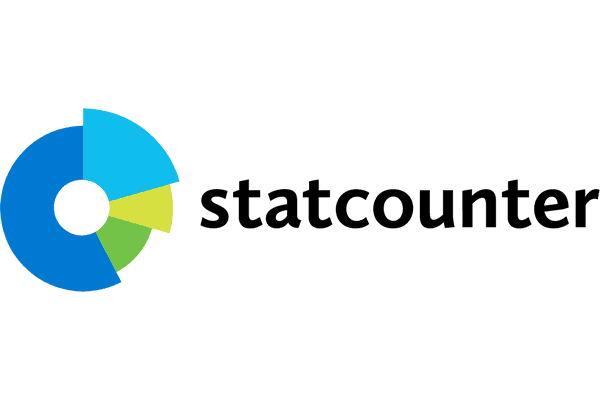INOVASI KURIKULUM DAN TEKNOLOGI PEMBELAJARAN (DEEP LEARNING)
DOI:
 https://doi.org/10.37859/eduteach.v6i02.9487
https://doi.org/10.37859/eduteach.v6i02.9487
Abstract
The deep learning instructional model, as proposed by Abdul Mu’ti, emphasizes mindful, meaningful, and enjoyable learning experiences. This approach not only encourages students to memorize but also to deeply understand and internalize knowledge, thereby enhancing critical thinking, independence, and active engagement in the learning process. This study aims to examine the implementation of the deep learning model in primary and secondary education in Indonesia through a literature review method. Based on an analysis of various academic sources and recent educational policies, it was found that this model holds significant potential for improving learning quality and fostering a more reflective and collaborative learning environment. However, its implementation still faces several challenges, including limited infrastructure, insufficient teacher training, and the dominance of traditional curricula that restrict learning flexibility. This article recommends strengthening teacher capacity through continuous professional development, providing adequate facilities and infrastructure, and developing policies that support the adoption of deep learning approaches. With the right support, deep learning can become a strategic educational approach to enhance the quality of education in Indonesia and to shape a generation that is adaptive and competitive in the global era.
Downloads
References
2. Zhang Y, Yan Y, Kumar RL, Juneja S. Improving college ideological and political education based on deep learning. Int J Inf Commun Technol. 2024;24(4):431–47.
3. Ayu PS, Ritonga S, Harun I. Studi Literatur: Penggunaan Strategi Pembelajaran Kontekstual dalam Pendidikan Agama Islam. Kaisa J Pendidik dan Pembelajaran. 2024;4(1):21–33.
4. Antoninis M, Alcott B, Al Hadheri S, April D, Fouad Barakat B, Barrios Rivera M, et al. Global Education Monitoring Report 2023: Technology in education: A tool on whose terms? 2023;
5. Hattie J. Visible learning: A synthesis of over 800 meta-analyses relating to achievement. routledge; 2008.
6. Biggs J, Tang C, Kennedy G. Teaching for quality learning at university 5e. McGraw-hill education (UK); 2022.
7. Nurhakim HQ. Manajemen Pembiayaan Pendidikan Di Sekolah. J LENTERA Kaji Keagamaan, Keilmuan dan Teknol. 2023;22(2):303–13.
8. Rizwan S, Nee CK, Garfan S. Identifying the Factors Affecting Student Academic Performance and Engagement Prediction in MOOC using Deep Learning: A Systematic Literature Review. IEEE Access. 2025;
9. Alshamaila Y, Alsawalqah H, Aljarah I, Habib M, Faris H, Alshraideh M, et al. An automatic prediction of students’ performance to support the university education system: a deep learning approach. Multimed Tools Appl. 2024;83(15):46369–96.
10. Widyawati ER, Sukadari S. Pemanfaatan Media Pembelajaran Berbasis Teknologi sebagai Alat Pembelajaran Kekinian bagi Guru Profesional IPS dalam Penerapan Pendidikan Karakter Menyongsong Era Society 5.0. Proc Ser Soc Sci Humanit. 2023;10:215–25.
11. Damanik FHS, Muhammad G. Sociology of education analysis on the deep learning approach to teaching. J Sumatera Sociol Indic. 2025;4(1):348–57.
12. Sudaryono. Metodologi Penelitian: Kuantitatif, Kualitatif dan Mix Method. Depok; 2019.
13. Moleong LJ. Metodologi penelitian kualitatif (Revisi). Bandung PT remaja rosdakarya. 2017;102–7.
14. Taofik I, Basit A. KONSEP PENDIDIKAN MULTIKULTURAL DI LEMBAGA PENDIDIKAN MUHAMMADIYAH (Studi Pemikran Prof. Dr. Abdul Mu’ti, M. Misykat al-Anwar J Kaji Islam dan Masy. 2022;5(1):53–78.
15. Milidar K. Inovasi Pembelajaran Pai Dengan Pendekatan Interaktif Untuk Generasi Milenial. J Rev Pendidik dan Pengajaran. 2024;7(2):6275–84.
16. Sugden N, Brunton R, MacDonald J, Yeo M, Hicks B. Evaluating student engagement and deep learning in interactive online psychology learning activities. Australas J Educ Technol. 2021;37(2):45–65.
17. Ruhalahti S. Redesigning a pedagogical model for scaffolding dialogical, digital and deep learning in vocational teacher education. 2019;
18. Albab U, Mawadah F, Nawawi F, Tito A, Ta’rifin A. Analisis Implementasi Kurikulum Merdeka Dalam Proses Pembelajaran Di Mts Ribattulmuta’alimin: Peluang Dan Tantangan. El-Fakhru. 2023;3(1):1–19.
19. Trimurtini T-, Laela N. Keefektifan Model Problem Based Learning (PBL) Berbantuan Tangram terhadap Hasil Belajar Matematika Kelas IV. J Medives J Math Educ IKIP Veteran Semarang. 2020;4(2).
20. Hartono H. Pendidikan karakter dalam al Qur’an pada kalangan remaja di era digital. Al-Bayan J Ilmu al-Qur’an dan Hadist. 2018;1(2):178–99.
21. Firdaus K, Ritonga M. Peran Teknologi Dalam Mengatasi Krisis Pendidikan di Daerah Terpencil. J Kepemimp Dan Pengur Sekol. 2024;9(1):43–57.
22. Nurhakim HQ, Harsing H, Ruswandi U, Erihadiana M. Basic Concepts and Background of Multicultural Education. J Pendidik Islam. 2025;15(1):78–88.
23. Akbar A, Noviani N. Tantangan dan solusi dalam perkembangan teknologi pendidikan di Indonesia. In: Prosiding Seminar Nasional Program Pascasarjana Universitas Pgri Palembang. 2019.
24. Hamda N, Nurhasanah E, Tasia FE. Peran guru dalam pelaksanaan pembelajaran inovatif. Aufklarung J Pendidikan, Sos dan Hum. 2021;1(2):130–6.
25. Dewi EGA, Putra IGJE. Pemanfaatan Edpuzzle untuk Mendukung PBL pada Sekolah Vokasi . J Anugerah [Internet]. 2023 May 31;5(1 SE-Articles):21–32. Available from: https://ojs.umrah.ac.id/index.php/anugerah/article/view/5346
26. Baharun H. Pengembangan Media Pembelajaran Pai Berbasis Lingkungan Melalui Model ASSURE. Cendekia J Educ Soc. 2016;14(2):236.
27. Anisabela M, Rahminawati N. Penggunaan Media Loose Parts untuk Mengembangkan Kemampuan Mengenal Konsep Ukuran pada Anak. J Ris Pendidik Guru Paud. 2022;46–50.
28. Siregar NAR, Susanti S, Liana M, Elvi M. Pelatihan E-LKPD Interaktif Menggunakan Liveworksheets untuk Guru SMP Negeri 14 Tanjungpinang. J Anugerah [Internet]. 2023 May 31;5(1 SE-Articles):83–94. Available from: https://ojs.umrah.ac.id/index.php/anugerah/article/view/5659
29. Miller A. PBL and STEAM Education: A Natural Fit. Edutopia. 2014;
30. Wang X, Zhao S, Liu J, Wang L. College music teaching and ideological and political education integration mode based on deep learning. J Intell Syst. 2022;31(1):466–76.
Downloads
Published
Issue
Section
License
Copyright (c) 2025 EduTeach : Jurnal Edukasi dan Teknologi Pembelajaran

This work is licensed under a Creative Commons Attribution-NonCommercial-ShareAlike 4.0 International License.










